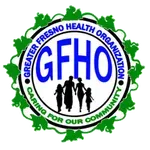The goals of well-child visits include:
- Monitoring growth and development: The healthcare provider will track the child's height, weight, head circumference, and other vital signs to ensure that the child is growing and developing at a healthy rate.
- Providing preventive care: The healthcare provider will administer any necessary vaccinations and recommend age-appropriate screenings and tests to detect any potential health problems early.
- Educating parents: The healthcare provider will provide parents with guidance and advice on how to keep their child healthy, including recommendations on nutrition, physical activity, and safety.
Overall, well-child visits are an important part of ensuring that children receive the medical care and support they need to grow up healthy and thrive.
Vaccinations are a crucial aspect of preventive healthcare for children. Vaccines are safe and effective in preventing a wide range of diseases that can cause serious illness, disability, and even death. Childhood vaccinations are typically administered during well-child visits and are recommended by healthcare providers and public health agencies.
Some common childhood vaccinations include:
- MMR (Measles, Mumps, and Rubella): This vaccine protects against three viral diseases that can cause fever, rash, and other complications.
- DTaP (Diphtheria, Tetanus, and Pertussis): This vaccine protects against three bacterial infections that can cause severe coughing, fever, and other complications.
- Hepatitis B: This vaccine protects against a viral infection that can cause liver damage and other serious health problems.
- Polio: This vaccine protects against a viral infection that can cause paralysis and other complications.
- Chickenpox (Varicella): This vaccine protects against a viral infection that can cause fever, rash, and other complications.
It's important for children to receive all recommended vaccines on schedule, as this provides the best protection against diseases. Vaccines not only protect the individual child but also help to prevent the spread of diseases within the community, including to those who may be too young or too sick to receive vaccines themselves.
Parents may have concerns about the safety of vaccines, but it's important to note that vaccines have undergone rigorous testing and have been proven to be safe and effective. The benefits of vaccination far outweigh the risks, and not vaccinating your child can put them and others at risk for serious illness.
Overall, childhood vaccinations are an essential component of preventive healthcare, and parents should work with their healthcare provider to ensure that their child receives all recommended vaccines on schedule.







